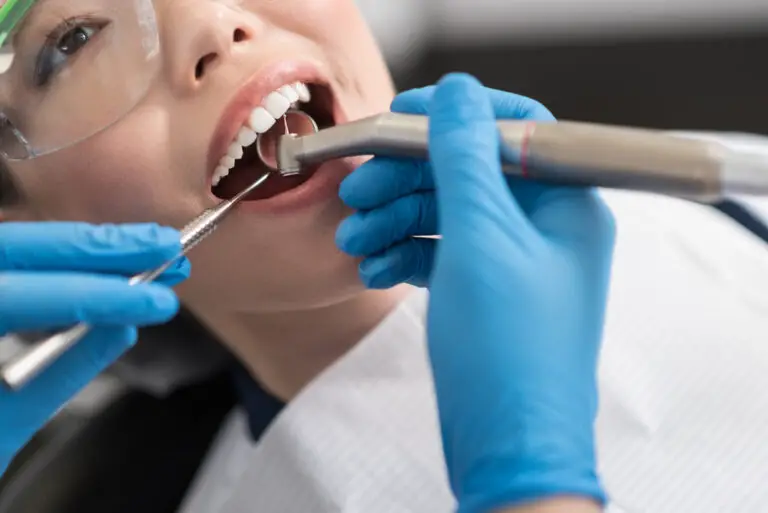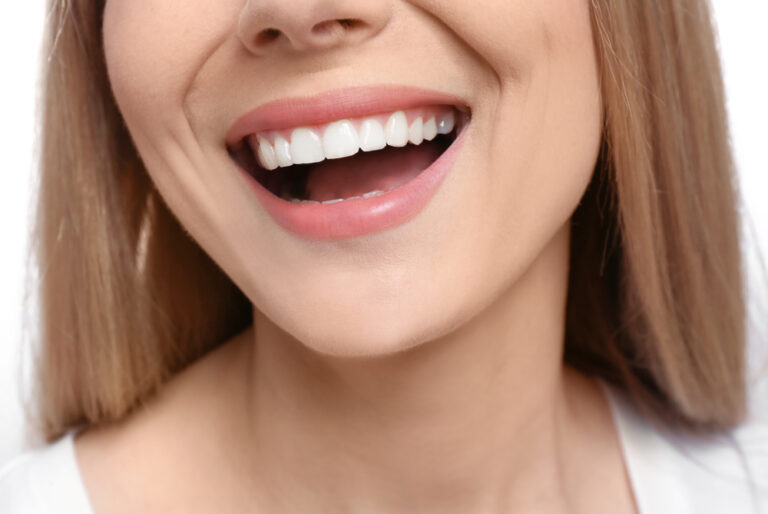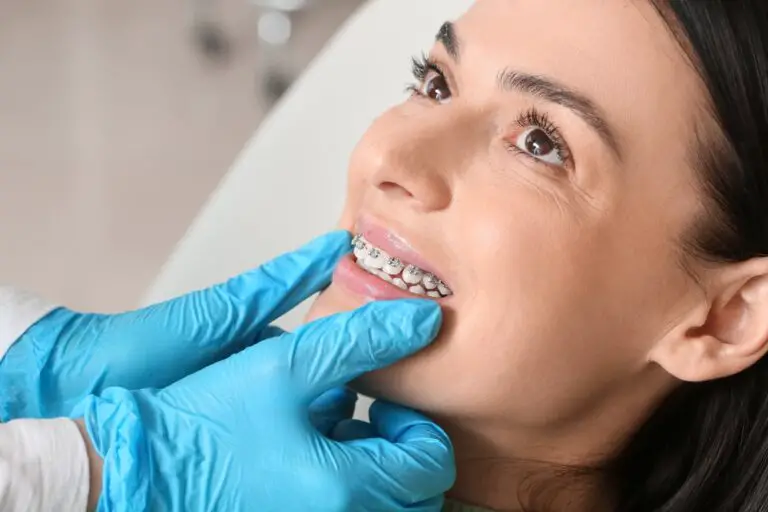Having healthy gums is an important part of oral health. Gums help anchor teeth in place and protect the roots underneath. Unfortunately, many people struggle with receding or insufficient gum tissue. This can make teeth more susceptible to decay and eventual tooth loss. The good news is there are ways to help increase gum tissue naturally. With proper oral care and treatment, it may be possible to regenerate gum growth.
What Causes Insufficient Gum Tissue?
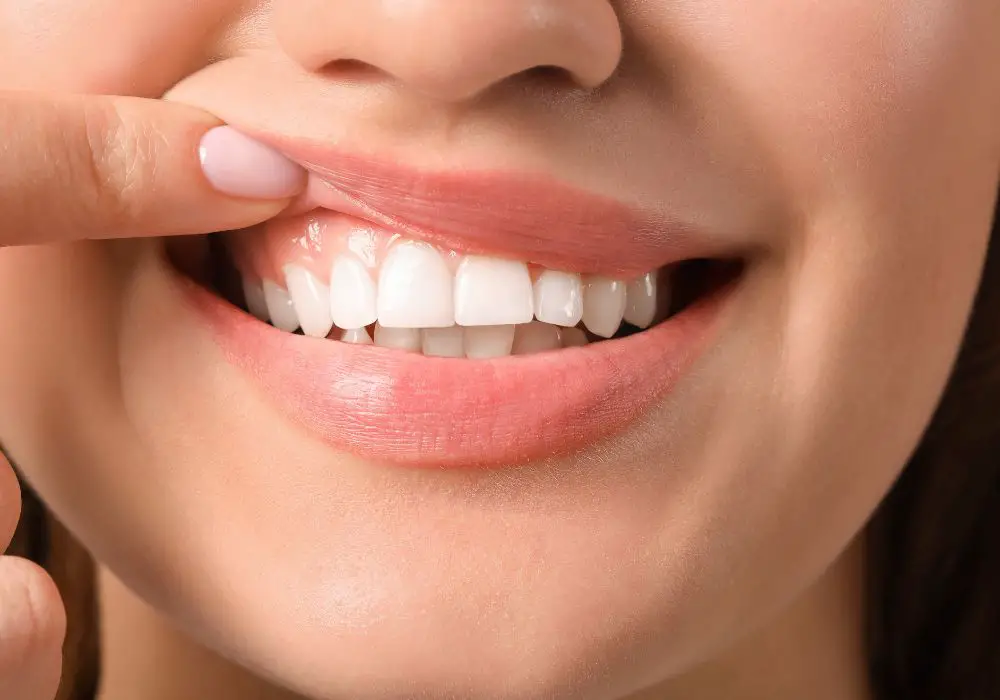
There are several potential causes of receding or insufficient gum tissue:
Gingivitis
Gingivitis is a mild form of gum disease caused by plaque buildup. Plaque is a sticky film containing bacteria that adheres to teeth. Without proper daily brushing and flossing, plaque can irritate gums and cause inflammation. The body may respond by shrinking gum tissue.
Periodontitis
Untreated gingivitis may advance to periodontitis, a more severe gum infection. Periodontitis results in damage to the soft tissue and bone structures that support teeth. The inflammation and deep bacterial pockets cause gums to detach and recede from teeth.
Aggressive Brushing
Aggressive brushing with a hard-bristled toothbrush can wear down gums over time. Brushing too hard or using abrasive toothpaste can rub away delicate gum tissue.
Smoking/Tobacco Use
Smoking is one of the biggest risk factors for gum recession. Chemicals in tobacco can damage gum tissues. Smokers tend to have more plaque and tartar buildup as well.
Hormonal Changes
Hormonal fluctuations in puberty, menstruation, pregnancy, and menopause can increase gum sensitivity and recession.
Genetics
Some people may simply be more prone to thinner gum tissue due to genetic factors. Certain health conditions also increase susceptibility.
Grinding/Clenching
Chronic teeth grinding (bruxism) places excessive biting forces against gums that can cause recession over time. Pressure from clenching can have similar effects.
Signs of Gum Loss
How do you know if you have insufficient gum tissue? Here are some of the most common symptoms:
- Sensitive teeth
- Exposed tooth roots
- Notched gums
- Loose teeth
- Changed tooth shape/position
- Spaces or gaps between teeth
Any sudden changes in gum appearance or texture also warrant an exam. It’s important to address gum loss as early as possible to halt its progression.
Natural Ways to Increase Gum Tissue
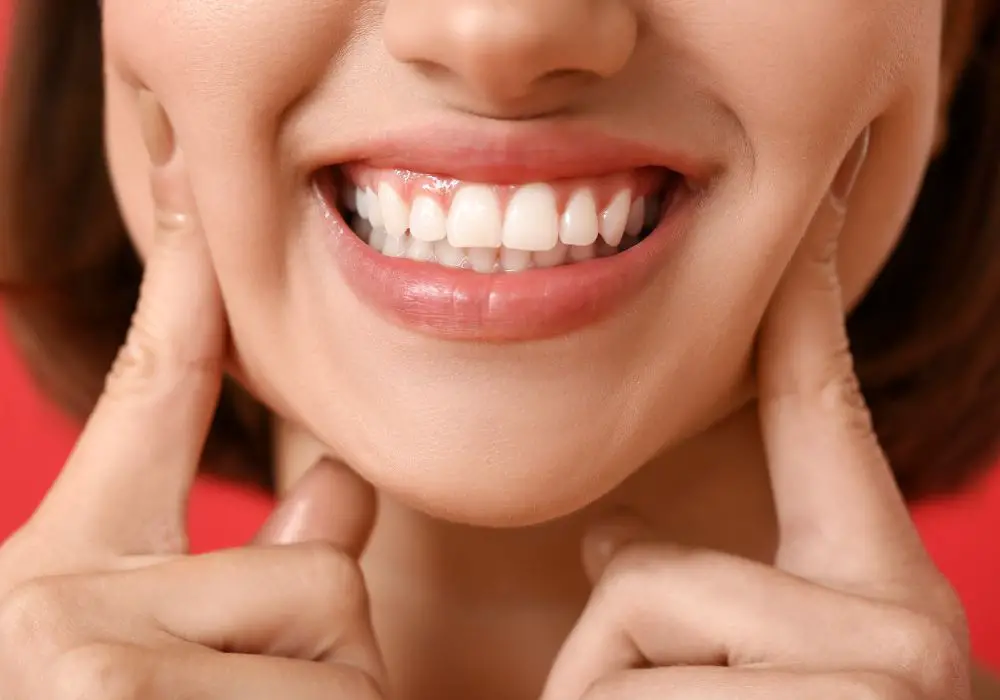
If you’re noticing gum recession or sensitive areas, there are a number of home remedies that may help stimulate regrowth:
Oil pulling
Oil pulling is an ancient oral health practice that involves swishing oil around the mouth for up to 20 minutes per day. It’s thought to reduce inflammation, flush away toxins, and support gum health. Sesame, coconut, and sunflower oils are common choices.
Aloe vera
Some studies show that aloe vera has healing properties that may aid receding gums. Use an aloe-based toothpaste or gel. You can also rub pure aloe vera gel directly along the gumline 1-2 times per day.
Green tea
Green tea contains antioxidants called catechins that have anti-inflammatory effects. Either drink green tea daily or rinse the mouth with it. You can also find oral health products that contain green tea extract.
Vitamin C
Vitamin C helps promote gum cell regeneration. Eat more citrus fruits, broccoli, peppers, and leafy greens. Consider taking a daily supplement as well.
CoQ10
Coenzyme Q10 (CoQ10) supports gum tissue metabolism and collagen production. Taking a 60-100 mg supplement once or twice per day may enhance results from other remedies.
Hyaluronic acid
Some research indicates that hyaluronic acid gel can help address gum recession defects. Hyaluronic acid helps retain moisture and stimulates regeneration. Consult your dentist to see if this treatment is appropriate.
Proper brushing technique
A soft-bristled brush, gentle pressure, and small circular motions help protect gums when brushing twice daily. Avoid sawing or aggressive brush movements.
Quit smoking
Giving up smoking allows gums to rebound and restore healthy blood circulation.
Rinse with salt water
Rinsing with a salt water mix can reduce inflammation and make gums tougher. Dissolve 1/2 teaspoon of salt in a cup of warm water and swish around the mouth.
Be patient, as it can take weeks or months to see noticeable improvement with natural gum enhancement methods. Practicing good oral hygiene and visiting your dentist regularly are also key for success.
Professional Treatment Options
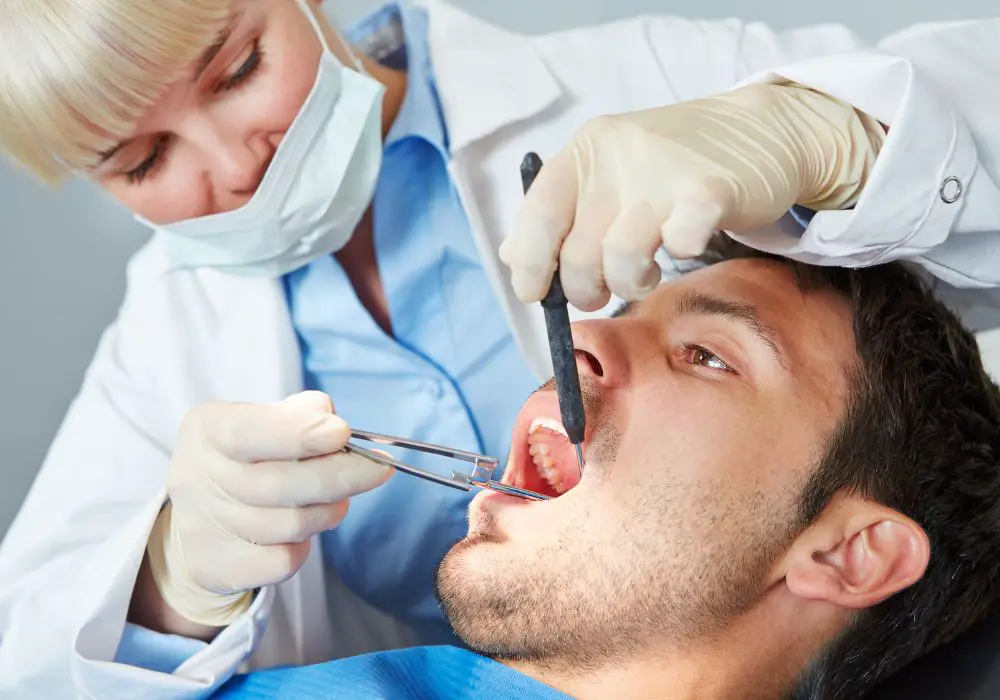
Some cases of gum recession and loss may require professional treatment for the best results. Talk to your dentist about which of the following options may be appropriate:
Deep cleaning
A deep cleaning above the gumline helps remove hardened plaque and tartar deposits. This allows gums to reattach and recover. Local anesthesia is usually needed to perform this below the gums.
Medications or Antiseptic Rinses
Prescription antimicrobial mouth rinses or gels with chlorhexidine may control harmful bacteria and encourage gum regrowth. Oral antibiotics or special medications to boost gum cell regeneration may also be prescribed.
Flap Surgery/Grafts
In severe cases, a gum graft can surgically cover exposed roots and increase thin tissue. This involves grafting tissue from the roof of the mouth or synthetically creating a graft. Following proper aftercare is vital for optimal results.
Pinhole Surgery
This is a less invasive option that involves puncturing a tiny hole in the gum to reposition and release the surrounding tissue. It causes minimal cutting and discomfort compared to conventional graft methods.
Scaling and Root Planing
Some dentists use a special tool to scrape and clean exposed roots below the gumline. This smoothing removes bacterial toxins and allows the gums to reattach.
Growth Factor Application
Applying certain growth factors like platelet-rich plasma (PRP) to affected areas encourages local gum tissue regrowth. This shows promising results for gum recession defects.
Consult your dentist to determine which solutions can work for your unique oral health needs. Proper homecare and fixing underlying issues are key for successfully increasing gum tissue.
Dietary Tips for Gum Health
Along with treatment, nutrition plays a vital role in gum health and regeneration. Here are some dietary tips to incorporate:
- Eat a balanced diet – Getting all macronutrients (proteins, carbs, fats) and micronutrients (vitamins, minerals) supports systemic and oral health.
- Consume probiotics – Probiotic foods like yogurt, kefir, and fermented items boost good bacteria levels. This creates a microbiome environment that deters periodontal pathogens.
- Eat antioxidant-rich foods – Fruits, vegetables and green tea provide antioxidants that can reduce inflammation involved with gum disease.
- Get enough Vitamin C – Vitamin C aids collagen formation which helps keep gums strong and resilient.
- Increase Omega-3 fatty acids – Omega-3s from fatty fish, nuts and seeds have anti-inflammatory effects.
- Choose bone-supporting nutrients – Calcium, phosphorus and vitamin D promote alveolar bone health which anchors teeth.
- Drink water – Staying hydrated keeps the mouth moisturized and helps neutralize bacteria acids that jeopardize gums.
- Limit sugary foods/drinks – Reducing sugar intake lowers the risk of cavities and plaque buildup that provoke gum problems.
With a balanced diet full of gum-friendly nutrients, you give your mouth the biological tools it needs to maintain and regrow healthy gum tissue.
Tips for Gum Health
- Brush gently twice daily
- Floss once daily
- Rinse using antimicrobial mouthwash
- Chew xylitol gum to stimulate saliva
- Get regular dental cleanings & checkups
- Don’t smoke cigarettes or use tobacco
- Limit alcohol consumption
- Drink plenty of water
- Manage stress levels
Frequently Asked Questions
How long does it take for receding gums to grow back?
With proper oral care and treatment, it can take several weeks up to a few months for gum tissue to naturally regenerate. More dramatic results are seen after surgical grafting, usually within 1-2 weeks.
What vitamins help receding gums?
Vitamin C is integral for gum tissue growth and healing. Vitamin D supports bone anchoring teeth. CoQ10 boosts gum cell metabolism. Multivitamins with zinc, folic acid and biotin also benefit gum health.
Can receding gums attach themselves again?
In mild cases, gums can reattach with consistent gentle brushing, flossing, antimicrobial rinses and natural remedies. Severe recession may need flap surgery and grafting for gums to attach again.
How can I thicken my gums?
Oil pulling, green tea, aloe vera, CoQ10, vitamin C and oral probiotics can help thicken gums naturally. Dentists may also recommend prescription antimicrobial rinses or gels to increase thickness.
What foods heal receding gums?
Gum-beneficial foods include salmon, nuts, seeds, orange juice, carrots, spinach, yogurt, green tea, garlic, berries, chicken, and beans. Their vitamins A, C, D calcium, and antioxidants promote gum restoration.
In summary, gum recession and insufficient tissue affect many people. But with diligent oral care, natural remedies, dietary adjustments and professional treatment as needed, it is often possible to successfully regrow receding gum tissue for improved oral health. Consistency and patience are vital in the gum regeneration process.


